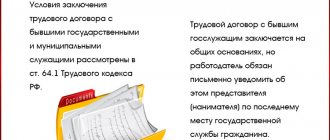Much of what is written in this article may seem self-evident or even absurd. However, HR managers, recruiters, and interviewers with enviable regularity deal with candidates whose behavior nullifies all chances of successfully passing an interview.
Read on for a list of the 34 most common job application mistakes that will ruin your chances of passing an interview.
Kill all chances at the very beginning
Late
Got stuck in a traffic jam? Has your car broken down? This is an excuse for the level of a kindergarten student. Being late for an interview is perhaps the best way to NOT pass the interview. It’s better to arrive 20 minutes earlier, it’s better to arrive 1 hour before the appointed time, you can even spend the night near the company’s office, but just don’t come later.
Support Group
It’s not uncommon for newly minted university graduates to sin like this when they come to an interview with their parents. Who needs a 20-year-old ram who is not able to take a step without his mother?
However, there are also cases when husbands come to get a job, accompanied by their wives. The motives of the latter are obvious: money for the family, and with a lover - time to have fun. But this is hardly interesting to the employer.
Appearance
The main rule is to comply. A short skirt that barely covers your butt, boots, a bare tummy with a decoration in the navel - this can be an outfit, but only if you are getting a job in a strip club, and not as an accountant in a transnational corporation.
Do you want to work in an office? Well, you should start getting used to business style: for men - a suit, for women - a modest skirt below the knees and a white blouse. Any deviation is a risk for you of not being included in the ranks of the office plankton.
First impression
The recruiter will need 10 seconds to evaluate your appearance: clothes, physique, face. Behavior in the next 20-40 seconds will form the first impression, which is extremely difficult to change:
Don't be too modest, but don't knock down doors like the tough guys in blockbuster movies. Say hello, smile - nothing complicated.
Bad habits
The fiery breath you sent in the direction of the teacher after yesterday's drinking is a reason to laugh with your student friends after the exam. But it won't do you any favors at the interview.
The smell of tobacco smoke means only one thing: you will spend up to 2 hours of your working time taking smoke breaks with a cup of coffee. Masterly mastery of the technique of blowing chewing gum bubbles is unlikely to be appreciated by a recruiter.
Error two. Inappropriate clothing and appearance
Job seekers often forget the truism that they meet people by their clothes. An experienced recruiter only needs to see how a person dresses in order to make an expert judgment about him.
Usually people who are looking for a job for a long time and can afford to come to an interview in almost casual clothes are guilty of carelessness in clothing.
Before the interview, it would be a good idea to check whether the company has a dress code. It is not necessary to follow the dress code one hundred percent, but it is advisable to dress in a style close to it. If there is no special dress code, then it is still better to follow a more conservative style than the one you are used to. And no naked parts of the body or fashionable jewelry. It is better to dress modestly but elegantly.
Two days of unshaven hair, unwashed hair, or a hangover are also not the best companions for an interview. The inappropriateness of chewing gum in the mouth during a conversation is not even worth mentioning.
Often, other things being equal, preference is given to the one who has not forgotten to take care of his appearance.
Behavior
Demonstrate the qualities required for a particular position
If you manage to sell a tube of toothpaste or mascara to an HR manager even before he asks your name and why you broke into his office, consider yourself hired to work in the sales department.
If you are applying for the position of personal secretary to a leader, in whose office there is a collection of floggers on the wall, and on the table “120 days of Sodom” by the Marquis de Sade, you should not show your leadership abilities; excessive confidence, activity and initiative will only do harm - he dominates here, you can only obey.
Excitement
If you are not confident in your abilities, do not have sufficient experience in interviews and communication in general, or feel like a schoolboy taking an exam from a teacher with sadistic inclinations, a liter of beer per soul will relieve anxiety, do not make the interview unduly important, in other words, just “forget” it. result.
Imagine the interviewer naked (the main thing is to do it without him noticing your lustful gaze), imagine that the HR manager owes you money (and do not forget to demand it from him at the end of the meeting), do everything that public speaking experts recommend to cope with anxiety.
Indifference
“Scoring” to get rid of anxiety is a good option. At the same time, you should not show it off.
Perhaps you are a “tidbit” as a specialist, perhaps you are doing the company a favor by nominating yourself for a vacant position. But, since you came to get a job, it means you want to get it. At the same time, indifferent behavior demonstrates your indifference to the company. Nobody needs such an employee.
Contempt
If you are applying for a managerial or other “status”, highly paid position, try to treat the hiring manager as your equal. It's difficult: you are God, and HR is a pathetic little person. But you have to try, because a lot depends on it. You shouldn’t demand “the general director - come to the studio!”; refrain from demanding that they make you coffee, which must be natural, with sugar and cream.
Shyness
Save your modesty for the day of matchmaking. An interview is nothing more than sales negotiations. The only difference is that the object of the transaction is not the product, but you, as a specialist. No experience working behind a store counter? It's your problems. An applicant with sales and self-presentation skills, under equal conditions, has a better chance of getting a job. Be energetic, praise yourself, the main thing is not to overdo it.
Egocentrism
If in your everyday speech, the pronoun “I” occurs more often than any other word, rest assured that you are an egoist: you are not interested in anything other than yourself, you are the most important person on this earth. It is sad. Nothing to be proud of.
There is no way to hide your decaying self from the interviewer, and your chances of getting a job are equal to what you really are - zero.
You're desperate for a job
This is visible, it is very difficult to hide, it is alarming, and for HR, this is also a reason for refusal, because it indicates 2 things:
- You are a lousy specialist, otherwise finding a job would not be a problem for you, and the interview would not be so important. Nobody needs such an employee;
- You are not interested in the company and its problems. All you are going to do at your new job is to pursue your own interests, without disdaining, if possible, to profit at the expense of the employer.
Mobile phone
As a token of gratitude for your love, did your sponsor give you the latest iPhone? Maybe you bought it for yourself, spending 1.5 months of your salary on a beautiful “tchotchke”, instead of investing the money wisely. All this is not important, and certainly not a reason to “shine” them in front of a potential advertiser. Hide it so far away that you will have to search for your mobile phone for at least 5 minutes, put it on silent mode or turn it off completely.
What to say about yourself at an interview
Usually the manager offers a very simple and at the same time complex task: tell about yourself. Here you need to proceed from what the recruiter wants to know by asking such a question? Undoubtedly, the employer is interested in your professional field of activity, and not in stories from your personal life. However, you shouldn’t duplicate information from your resume either. Retelling dry biographical facts is unlikely to impress the employer.
Provide only information that directly relates to your future place of work:
- talk about your qualifications, experience and professional qualities, such as seriousness, attentiveness, accuracy, truthfulness, hard work.
- Your presentation should be based on your professional strengths. Especially highlight those aspects that your competitors lack. This submission will bring your employment closer.
Do not mention in your monologue that the vacant position will help improve your life. The employer should not know that the new position, in your opinion, will open the way to a new world for you: it will help you purchase real estate, help you move abroad, or simply help you save money.
Having told your manager about such plans, the latter may think that you are not interested in working for the company, and you view it only as a means to improve your financial situation.
"Fool Me If You Can"
Cheating on your resume
You can write whatever you want on your resume, and how truthful it is will probably become clear a couple of minutes after reading it - you simply won’t be invited to an interview. However, if an invitation does arrive, this does not mean that you are lucky; rather, on the contrary, the dirty truth will be revealed in your presence.
Lying about personality traits
Every employer wants to have on its staff: executive, responsible, punctual, attentive, diligent, active, stress-resistant employees. These are not just words that the candidate wants to hear from the candidate, but requirements. And if you don’t meet them, even if you pass the interview, the test will show what you’re really made of.
Exaggeration regarding wages
60% of job seekers lie when they tell them their salary at their previous job. Hiring managers know this very well. And once again they are convinced of this after a telephone call to the candidate’s previous manager.
Lies about hobbies
Do you love literature and read books? “50 Shades of Gray” or Daria Dontsova’s detective story? They included “Theater” among the lists of hobbies on their resume to create the impression of an intelligent person. What was the last play you saw?
Bluff
Bluffing is fine when it comes to making money playing poker, but not during an interview. Telling an HR manager that you are inundated with job offers is not only undesirable (even if this is true), but is interpreted as an attempt to pull off an old well-known trick to influence, in particular, the speed of decision-making. Speaking of the latter...
Attempted manipulation
Have you read Dale Carnegie, a dozen books on NLP, watched all the episodes of “The Theory of Lies”? Do not try to use psychological methods to influence the interviewer. It is very likely that he knows them better than you, because it is his job to understand people, to be able to “read” them. If caught attempting manipulation, the chances of being hired are not great.
Charm and seduction
If the recruiter is of the opposite sex, the last thing you should do is try to influence him through flirting, coquetry, and focusing on sexual attractiveness. You can try, but the chances of achieving a negative effect are higher than succeeding.
Error eight. Lies and embellishment of facts
Many candidates have a desire to appear better than they actually are. Especially if it's your dream job. And this is understandable. However, you shouldn’t be like Leonardo DiCaprio’s hero from the famous film “Catch Me If You Can,” who changed his identities and became whoever he wanted with the ease of a magician: from a pilot to a doctor.
The applicant should be aware that everything secret will sooner or later become apparent. The skills and business qualities attributed to oneself are easily tested during subsequent work. With all that it implies. As you know, DiCaprio's hero ended his turbulent career in prison. True, he later became a police fraud consultant. But that's a completely different story.
Interview
Take pity
Sitting in front of you is the same resident of the metropolis as you, the same representative of the office plankton as you will soon become (if you haven’t already), he is not interested and even indifferent to your difficult fate and all the hardships that you have endured.
You have been unemployed for 3 months, but you need to feed 2 children? No one will hire you out of sympathy, but with this phrase of a couple of words you will tell the hiring manager a lot, in particular that you are a bad specialist, useless to anyone, since you cannot find a job.
Talkativeness
You just can’t get through to any of your girlfriends - they simply don’t pick up the phone, because you’ve already annoyed them with your many hours of talking on the phone. You get the opportunity to finally speak up during the interview. Do not do that. No matter how much you would like to, answer briefly, concisely, and to the point.
Frankness
Sometimes the interviewer deliberately encourages a naive candidate to be frank in order to bring him to the surface. Start a friendly conversation with him, have an intimate conversation, discuss the political situation in the country - try to avoid this.
Obsession with money
“How much will you pay me?” - not the best phrase to start a conversation. No employer wants an employee who is only interested in money. It’s worth admitting that few people are interested in anything else other than money. However, you should at least not demonstrate greed and commercialism.
On the first interview date, there is basically no point in asking about salary. This question looks, at least, stupid if you don’t pass, which the HR manager probably already knows about, but is in no hurry to tell you.
What to report about deficiencies
At some interviews, a provocative question is asked about what shortcomings you have. And then the applicant finds himself at a loss and does not understand what is going on. Since an interview is not a confession with a priest, leave excessive frankness at the office door.
Here you can base your answer on an example of how you made the wrong decision because of your persistence. Tell us how the stubbornness of your character played a cruel joke on you. Let them know that the incident taught you a harsh but valuable lesson, and that you will prevent a similar situation from happening in the future.
The recruiter will appreciate such frankness, because there are no ideal people, but not everyone can benefit from unpleasant moments.
Questions and answers
Unprepared for an interview
There are not many standard questions that are likely to be asked that you must answer clearly if you want to ace the interview. The most important thing is that you have time to prepare and even rehearse. Even if you are a master of impromptu, you should not neglect this.
Ignorance of the company
If you don’t know anything about the company you came to apply for a job, your choice was definitely not conscious, you just posted your resume on the Internet and waited for someone to invite you. But even after the invitation, they did not deign to find out more about the company in which you may have to work. This once again confirms that you are lazy and indifferent.
Justification for choosing a profession
Why did you decide to go this route? Why did you choose this specialty? “It just happened that way” or “your parents arranged to study where it turned out to be”? If you cannot give a clear answer, you will have no chance in comparison with a candidate who entered the profession consciously, because he always wanted to do it.
What position are you applying for?
“And I can also cross-stitch and embroider on a typewriter...”
Related positions are one thing: accountant, economist - this is quite normal. But you shouldn’t tell me that you can work as a sales manager, advertising manager, personnel manager, customer service manager – anyone, as long as they hire you.
Reason for leaving previous job
It definitely needs to be identified. In any case, a potential employer will probably find out the real reasons by calling the previous one. What you shouldn’t do is criticize your previous bosses, team or the company as a whole.
This is a bad way of revenge, even if your previous boss unfairly kicked you out because instead of working, you spent time on social networks and sites with adult content.
Your achievements
If you don't have anything to show off...it's unlikely that any advice will help you. You are planning to build a career, aren't you? You should have thought about this earlier - at previous jobs: instead of sitting aimlessly for 9 hours a day, I imitate activity - I actually work, because you are paid money for this. In this case, achievements would not be long in coming and you would have something to talk about at the interview.
Your shortcomings
You have more of them than you can imagine and you know it - you are a complete flaw: lazy, incompetent, pessimistic, indifferent, illiterate. You can try to tell the interviewer about all this, he will probably consider it a joke, you will laugh, after which there is a chance to change the topic.
No questions
Prepare a few questions for the employer in advance and be sure to ask them. Otherwise, there is a chance to create the impression of a spineless mollusk, incapable of thinking, and therefore of working. On the same note, don't question the interviewer during your first interview.
Wage
Inflated demands are, first of all, typical for university graduates: 5 years of idleness and, finally, the opportunity to earn money. Such applicants believe that university knowledge is highly valuable, that grades matter, they do not yet know how high the competition is in the labor market, but without exception they all want high wages.
Error six. Do not have questions for the employer
Many candidates are embarrassed to ask questions to the interviewer and make a mistake. Questions from a candidate are also one of the indicators of his interest in the position. However, there should not be too many questions. 2-3 words about the upcoming work are enough. For example:
- What will be my job responsibilities?
- Are there business trips and overtime pay?
- Is training provided by the company and voluntary health insurance?
Don’t forget that they choose not only you, but you too. Therefore, it is better to discuss issues that are particularly important for the candidate, for example, regarding insurance, career growth, vacation, “on shore”, so that the start of work will not be associated with unpleasant discoveries for the new employee.
It is better to leave the most pressing question for a candidate about salary for last, unless the interviewer himself raised this topic earlier. As they say, sell yourself first, negotiate the price later. After all, as a rule, the matter does not end with one interview. And if the applicant is interested, he is invited to subsequent interviews, where the question of salary will seem more appropriate.
There's no room for jokes
By the way, there are also “witty” people who answer the previous question with “Sex, drugs, rock and roll.” So, give up such manifestations of your original sense of humor.
In addition, there is no need to tell anecdotes or stories from life during the interview - even if they seem incredibly relevant to you. Do not use obscene language under any circumstances, do not wink at your interlocutor and do not laugh at the top of your lungs.
It will be better if you save your unique sense of humor for future colleagues - in the event that you do get hired.
Remember that a stressful situation can provoke you to take the wrong tone in a conversation with a potential employer. Therefore, rehearse your answers to the most common questions in advance, which we previously wrote about on our website, behave confidently and do not give in to provocations.
Some important recommendations
- Know that you have been invited to an interview so that the employer can evaluate your intelligence and professionalism. After all, every recruiter wants to work in a team with a qualified, creative, stress-resistant and sociable person. If you structure your answers according to this principle, you will make a good impression and get a job offer.
- And whatever you say, the main thing is to give sincere and truthful answers. Present your positive qualities and hide your negative ones. You should not invent that you managed to increase your sales level on your own if this information is far from the truth. But a truthful story that you have established relationships with your partners will be appropriate at an interview.
- Choose strong words. When communicating with a recruiter, watch your use of verbs. Perfect verbs such as did, noted, developed, completed, found will have a good effect on the employer. Indefinite verbs led, did, worked, set up - characterize you as a person doing something, but who did not complete the job.
- Your voice should have clarity and confidence.








